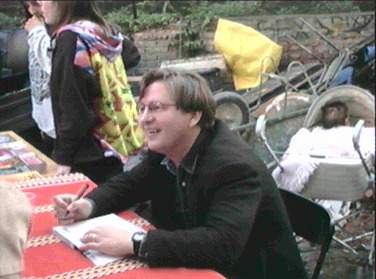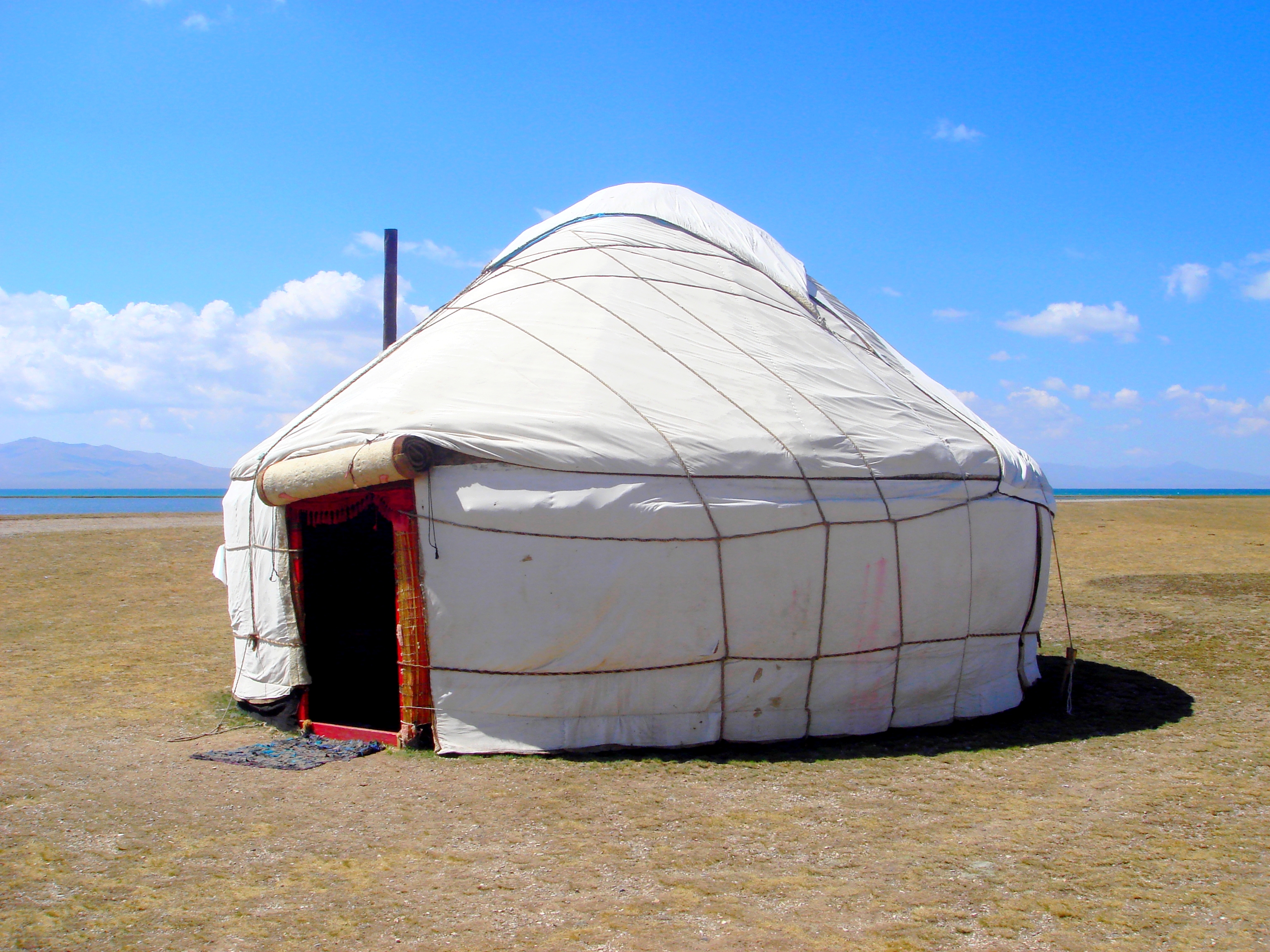|
1993–2010 Constitution Of Kyrgyzstan
A new constitution of Kyrgyzstan was passed by referendum on 21 October 2007. It is based on the first post-Soviet constitution originally adopted on 5 May 1993. The 1993 constitution had been amended several times: first on 10 February 1996, then on 2 February 2003, and finally twice in quick succession on 9 November 2006 and 15 January 2007 after the Tulip Revolution of March 2005. The last two amendments were adopted under pressure from protracted public protests in the capital Bishkek, but they were annulled in September 2007 by the Constitutional Court, which restored the 2003 constitution and paved the way for another constitutional referendum in October 2007. The description that follows is based on the text of the October 2007 constitution. This constitution was replaced by the 2010 Constitution of Kyrgyzstan in June 2010. Article 1 The Kyrgyz Republic (Kyrgyzstan) is a sovereign, unitary, democratic, constitutional, secular, social state. The citizens of the Kyrgyz Repu ... [...More Info...] [...Related Items...] OR: [Wikipedia] [Google] [Baidu] |
Constitution Of Kyrgyzstan
The Constitution of Kyrgyzstan is the supreme law of the Kyrgyz Republic. Kyrgyzstan first got a constitution in 1993, a year and a half after the country had gained independence from the Soviet Union in 1991. It has gone through a few constitutions, with the last one being adopted in April 2021. History 1993 constitution The first constitution was adopted on 5 May 1993. The 1993 constitution was amended several times: first on 10 February 1996, then on 2 February 2003, and finally twice in quick succession on 9 November 2006 and 15 January 2007 after the Tulip Revolution of March 2005. The last two amendments were adopted under pressure from protracted public protests in the capital Bishkek, but they were annulled in September 2007 by the Constitutional Court, which restored the 2003 constitution and paved the way for another constitutional referendum in October 2007. 2007 constitution 2010 constitution 2021 constitution The current constitution of Kyrgyzstan was ... [...More Info...] [...Related Items...] OR: [Wikipedia] [Google] [Baidu] |
Felix Kulov
Felix Sharshenbayevich Kulov (russian: Феликс Шаршенбаевич Кулов; ky, Феликс Шаршенбаевич (Шаршенбай уулу) Кулов, Feliks Sharshenbayevich (Sharshenbay uulu) Kulov; born 29 October 1948) is a Kyrgyz politician who served as the 9th Prime Minister of Kyrgyzstan from 2005 to 2007, following the Tulip Revolution. He first served from 1 September 2005 until he resigned on 19 December 2006. President Kurmanbek Bakiyev reappointed him acting Prime Minister the same day, but parliamentary opposition meant Bakiyev's attempts to renominate Kulov in January 2007 were unsuccessful, and on 29 January the assembly's members approved a replacement. Kulov cofounded and leads Ar-Namys, a political party, and chairs the People's Congress, an electoral alliance to which Ar-Namys belongs. Political career Kulov was born in Frunze (present-day Bishkek), and initially trained as a policeman. Between 1978 and 1998 he held various posts in the ... [...More Info...] [...Related Items...] OR: [Wikipedia] [Google] [Baidu] |
Constitutional Court Of Kyrgyzstan
The Constitutional Court of Kyrgyzstan was formerly the highest court of Kyrgyzstan's legal system. It judges on the constitutionality of laws and is composed of nine judges. Critics argue that its politically charged judgement such as allowing President Akayev to re-run for President despite the Presidency being limited by term limits are evidence of a lack of judicial independence. The Constitutional Court was abolished in 2010 with the adoption of the new Constitution and its powers transferred to the Supreme Court. See also *Courts of Kyrgyzstan The judicial system of Kyrgyzstan comprise a number of courts in a hierarchy: *Supreme Court of Kyrgyzstan * Military Courts of Kyrgyzstan (until December 2016) *Appeal courts of second instance at the oblast level *Local courts of first instance ... References Judiciary of Kyrgyzstan {{Kyrgyzstan-gov-stub ... [...More Info...] [...Related Items...] OR: [Wikipedia] [Google] [Baidu] |
Cabinet (government)
A cabinet is a body of high-ranking state officials, typically consisting of the executive branch's top leaders. Members of a cabinet are usually called cabinet ministers or secretaries. The function of a cabinet varies: in some countries, it is a collegiate decision-making body with collective responsibility, while in others it may function either as a purely advisory body or an assisting institution to a decision-making head of state or head of government. Cabinets are typically the body responsible for the day-to-day management of the government and response to sudden events, whereas the legislative and judicial branches work in a measured pace, in sessions according to lengthy procedures. In some countries, particularly those that use a parliamentary system (e.g., the UK), the Cabinet collectively decides the government's direction, especially in regard to legislation passed by the parliament. In countries with a presidential system, such as the United States, the Ca ... [...More Info...] [...Related Items...] OR: [Wikipedia] [Google] [Baidu] |
Adakhan Madumarov
Adakhan Kumsanbayevich Madumarov (born 3 September 1965) is a Kyrgyz lawyer, historian, and politician, currently the party chairman of United Kyrgyzstan, and previously served as a member of the Supreme Council of Kyrgyzstan from 1995 to 2005. Early life and education Adakhan Kumsanbavevich Madumarov was born on 3 September 1965 in the village of Kurshab, a town in the Osh Oblast of what was then the Kirghiz Soviet Socialist Republic in the Soviet Union. After graduating high school in Kurshab, he worked as a farmer in his home district of Uzgen. In 1987, Madumarov attended Tver State University, and in 1992 he received a diploma of a historian-teacher of history and political science. He also became a Republican Press Minister, and then took the post as editor-in-chief of the '' Turk Alamy''. He led an editorial on child and youth programs at the Republican State National Broadcasting Company. In 1999, Madumarov graduated from Kyrgyz National University. Political career S ... [...More Info...] [...Related Items...] OR: [Wikipedia] [Google] [Baidu] |
Marat Sultanov
Marat may refer to: People *Marat (given name) *Marat (surname) **Jean-Paul Marat (1743-1793), French political theorist, physician and scientist Arts, entertainment, and media *''Marat/Sade'', a 1963 play by Peter Weiss * ''Marat/Sade'' (film), a 1967 adaptation by Adrian Mitchell *''The Death of Marat'', a 1793 painting *''Il piccolo Marat'', an opera Places * Marat (Phoenicia), a former Phoenician town now known as Amrit, Syria * Marat, Puy-de-Dôme, a commune in France * Marat Fjord, Severnaya Zemlya * Marat Shahr Marat Shahr ( fa, مرتع شهر, also Romanized as Maratʿ Shahr) is a village in Deraz Kola Rural District, Babol Kenar District, Babol County, Mazandaran Province, Iran Iran, officially the Islamic Republic of Iran, and al ..., a village in Mazandaran Province, Iran Ships * ''Marat'' (ex- ''Petropavlovsk''), a Soviet battleship * ''Marat'', the French name of HMS ''Belleisle'' See also * Murat (other) {{disambiguation, ... [...More Info...] [...Related Items...] OR: [Wikipedia] [Google] [Baidu] |
Hacker (computer Security)
A security hacker is someone who explores methods for breaching defenses and exploiting weaknesses in a computer system or network. Hackers may be motivated by a multitude of reasons, such as profit, protest, information gathering, challenge, recreation, or evaluation of a system weaknesses to assist in formulating defenses against potential hackers. The subculture that has evolved around hackers is often referred to as the "computer underground". Longstanding controversy surrounds the meaning of the term "hacker." In this controversy, computer programmers reclaim the term ''hacker'', arguing that it refers simply to someone with an advanced understanding of computers and computer networks and that ''cracker'' is the more appropriate term for those who break into computers, whether computer criminals ( black hats) or computer security experts ( white hats). A 2014 article noted that "the black-hat meaning still prevails among the general public". History Birth of subcult ... [...More Info...] [...Related Items...] OR: [Wikipedia] [Google] [Baidu] |
Non-governmental Organization
A non-governmental organization (NGO) or non-governmental organisation (see spelling differences) is an organization that generally is formed independent from government. They are typically nonprofit entities, and many of them are active in humanitarianism or the social sciences; they can also include clubs and associations that provide services to their members and others. Surveys indicate that NGOs have a high degree of public trust, which can make them a useful proxy for the concerns of society and stakeholders. However, NGOs can also be lobby groups for corporations, such as the World Economic Forum. NGOs are distinguished from international and intergovernmental organizations (''IOs'') in that the latter are more directly involved with sovereign states and their governments. The term as it is used today was first introduced in Article 71 of the newly-formed United Nations' Charter in 1945. While there is no fixed or formal definition for what NGOs are, they are genera ... [...More Info...] [...Related Items...] OR: [Wikipedia] [Google] [Baidu] |
Coup D'état
A coup d'état (; French for 'stroke of state'), also known as a coup or overthrow, is a seizure and removal of a government and its powers. Typically, it is an illegal seizure of power by a political faction, politician, cult, rebel group, military, or a dictator. Many scholars consider a coup successful when the usurpers seize and hold power for at least seven days. Etymology The term comes from French ''coup d'État'', literally meaning a 'stroke of state' or 'blow of state'. In French, the word ''État'' () is capitalized when it denotes a sovereign political entity. Although the concept of a coup d'état has featured in politics since antiquity, the phrase is of relatively recent coinage.Julius Caesar's civil war, 5 January 49 BC. It did not appear within an English text before the 19th century except when used in the translation of a French source, there being no simple phrase in English to convey the contextualized idea of a 'knockout blow to the existing administratio ... [...More Info...] [...Related Items...] OR: [Wikipedia] [Google] [Baidu] |
BBC News
BBC News is an operational business division of the British Broadcasting Corporation (BBC) responsible for the gathering and broadcasting of news and current affairs in the UK and around the world. The department is the world's largest broadcast news organisation and generates about 120 hours of radio and television output each day, as well as online news coverage. The service maintains 50 foreign news bureaus with more than 250 correspondents around the world. Deborah Turness has been the CEO of news and current affairs since September 2022. In 2019, it was reported in an Ofcom report that the BBC spent £136m on news during the period April 2018 to March 2019. BBC News' domestic, global and online news divisions are housed within the largest live newsroom in Europe, in Broadcasting House in central London. Parliamentary coverage is produced and broadcast from studios in London. Through BBC English Regions, the BBC also has regional centres across England and national news c ... [...More Info...] [...Related Items...] OR: [Wikipedia] [Google] [Baidu] |
Yurt
A yurt (from the Turkic languages) or ger ( Mongolian) is a portable, round tent covered and insulated with skins or felt and traditionally used as a dwelling by several distinct nomadic groups in the steppes and mountains of Central Asia. The structure consists of a flexible angled assembly or latticework of wood or bamboo for walls, a door frame, ribs (poles, rafters), and a wheel (crown, compression ring) possibly steam-bent as a roof. The roof structure is sometimes self-supporting, but large yurts may have interior posts supporting the crown. The top of the wall of self-supporting yurts is prevented from spreading by means of a tension band which opposes the force of the roof ribs. Yurts take between 30 minutes and 3 hours to set up or take down, and are generally used by between five and 15 people. Nomadic farming with yurts as housing has been the primary life style in Central Asia, particularly Mongolia, for thousands of years. Modern yurts may be permanently built ... [...More Info...] [...Related Items...] OR: [Wikipedia] [Google] [Baidu] |





